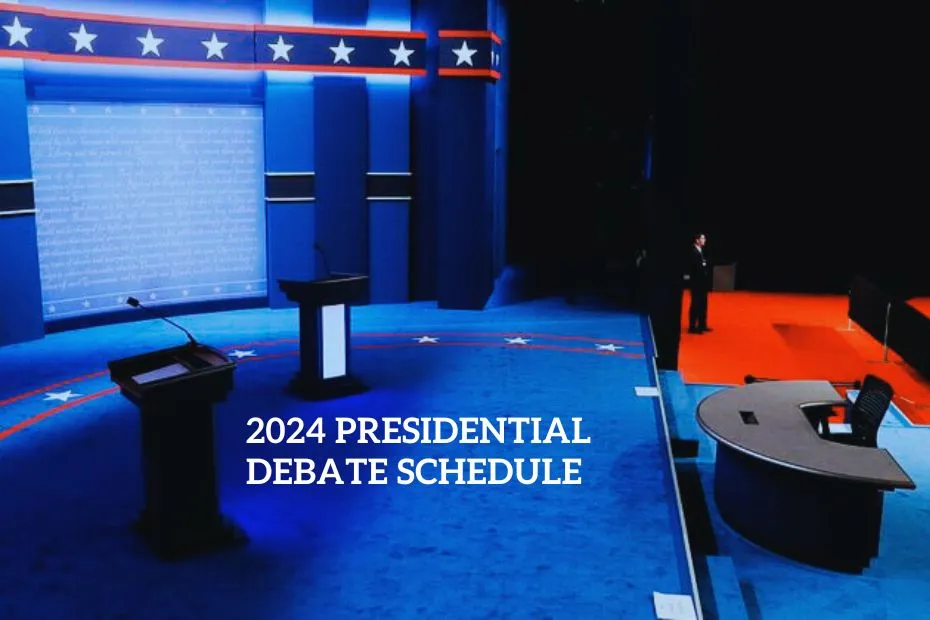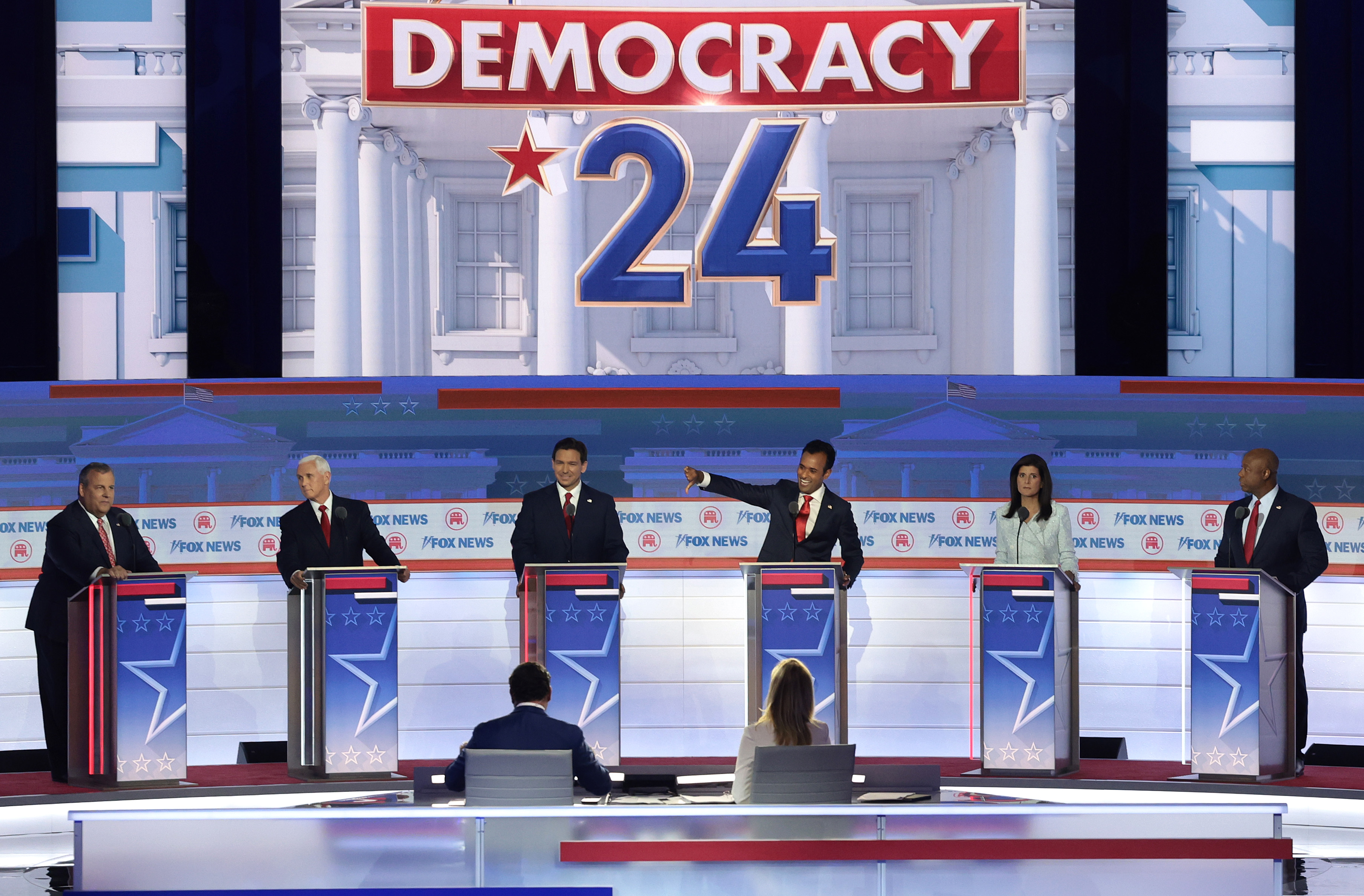Significance of Presidential Debate Dates

Presidential debates are pivotal events in the American electoral cycle, shaping voter perception and influencing campaign strategies. The timing of these debates plays a crucial role in their impact, as they can amplify certain themes and affect the momentum of the race.
Impact on the Election Cycle and Campaign Strategies, Presidential debate dates
The timing of presidential debates significantly impacts the election cycle and campaign strategies. Debates can influence the flow of information and public discourse, particularly in the latter stages of the campaign.
- Setting the Agenda: Debates can help set the agenda for the campaign, focusing public attention on specific issues or themes. For example, a debate held shortly after a major policy announcement could give the candidate an opportunity to further explain their stance and influence public opinion.
- Highlighting Key Differences: Debates provide a platform for candidates to highlight their key differences on policy issues, allowing voters to compare and contrast their positions. This can be particularly important in close races where voters are undecided.
- Momentum and Media Coverage: Debates can create momentum for a candidate, particularly if they deliver a strong performance. Positive media coverage following a debate can translate into increased support and donations. Conversely, a poor performance can damage a candidate’s image and lead to negative media coverage.
- Shifting Voter Sentiment: Debates can influence voter sentiment, particularly among undecided voters. A strong performance by one candidate can sway undecided voters towards their side, while a poor performance can lead to a decline in support.
Influence on Voter Perception and Public Opinion
Presidential debates significantly influence voter perception and public opinion, often shaping how voters evaluate candidates and their positions on key issues.
- First Impressions and Candidate Image: Debates can create lasting first impressions of candidates, particularly for those unfamiliar with their policies and personalities. These impressions can influence how voters perceive candidates’ competence, trustworthiness, and likability.
- Policy Clarity and Issue Focus: Debates provide a platform for candidates to clarify their positions on policy issues, giving voters a better understanding of their stances. This can be particularly important in complex policy areas where voters may have limited knowledge.
- Candidate Performance and Style: Voter perception is often influenced by candidate performance and style during debates. A confident and articulate candidate can create a positive impression, while a candidate who appears nervous or unprepared may be seen as less competent.
- Post-Debate Analysis and Media Coverage: Media coverage and post-debate analysis can shape public opinion, amplifying certain themes and framing the debate in a particular light. This can influence how voters interpret the candidates’ performances and their positions on key issues.
Strategic Considerations in Scheduling and Participating in Debates
Candidates and their campaigns carefully consider the strategic implications of scheduling and participating in presidential debates, aiming to maximize their impact and minimize potential risks.
- Timing and Relevance: Candidates consider the timing of debates in relation to key events in the campaign, ensuring that they align with their strategic objectives. For example, a candidate might seek to participate in a debate shortly before a major policy announcement to highlight their stance on the issue.
- Debate Format and Structure: Candidates and their teams carefully analyze the format and structure of debates, understanding how it might affect their performance. For example, a candidate might prefer a format that allows for longer responses, while another might prefer a format that emphasizes shorter, more concise answers.
- Opponent Strategies: Candidates also consider the strategies of their opponents when deciding whether and how to participate in debates. For example, a candidate might choose to avoid a debate if they believe their opponent is likely to dominate the discussion.
- Public Perception and Media Coverage: Candidates are aware that their performance in debates will be closely scrutinized by the media and the public. They strive to deliver strong performances that will generate positive media coverage and reinforce their image as competent and trustworthy leaders.
Impact of Presidential Debates on Election Outcomes

Presidential debates are often considered pivotal events in the election cycle, with the potential to influence voter perceptions, shape the narrative of the campaign, and ultimately impact the outcome of the election. These televised events offer a unique platform for candidates to directly engage with the electorate, presenting their policy positions, contrasting their approaches, and showcasing their leadership qualities.
Debates and Election Outcomes
The influence of presidential debates on election outcomes is a subject of ongoing debate among political scientists and analysts. While it is difficult to definitively quantify the impact of a single event, historical examples demonstrate the potential for debates to significantly alter the course of a campaign. For instance, the 1960 Nixon-Kennedy debate, widely considered the first televised presidential debate, is often credited with giving Kennedy an edge, particularly among undecided voters. Kennedy’s youthful appearance and confident demeanor contrasted with Nixon’s perceived nervousness, which translated into a significant boost in public opinion polls. This example illustrates how debates can influence voter perceptions, particularly when visual elements play a crucial role.
Debates and Voter Turnout
Presidential debates can also influence voter turnout, although the effect is complex and often difficult to isolate from other factors. The increased media attention and public discourse surrounding debates can heighten voter interest and engagement, potentially leading to higher turnout. However, debates can also have the opposite effect, particularly if they are perceived as uninformative or lacking in substance. In such cases, voters may feel less motivated to participate, leading to a decline in turnout. The impact of debates on voter turnout ultimately depends on various factors, including the perceived importance of the election, the level of voter engagement, and the perceived quality of the debates themselves.
Debates and Candidate Performance
The performance of candidates in presidential debates can significantly impact their electoral fortunes. A strong performance can boost a candidate’s standing, enhance their credibility, and generate positive media coverage. Conversely, a poor performance can damage a candidate’s image, erode public trust, and provide ammunition for their opponents. Examples of candidates who benefited from strong debate performances include Barack Obama in 2008, whose eloquent and articulate responses resonated with voters. Conversely, candidates who suffered from poor debate performances include Mitt Romney in 2012, whose gaffes and inconsistencies raised doubts about his qualifications.
The presidential debate dates are crucial for voters to understand the candidates’ stances on critical issues. One of the most anticipated debates is the abc presidential debate , which is expected to draw a large audience. The debate schedule provides a roadmap for voters to follow as they make their decision in the upcoming election.
The presidential debate dates are a critical part of the electoral process, especially in a year like 2020, where the world grappled with the COVID-19 pandemic. The pandemic’s impact on the debates was significant, forcing organizers to adapt to new safety protocols.
Understanding the global impact of COVID-19, its origins, and its spread is crucial to appreciating the challenges faced by the world, including the United States, during this period. Who COVID-19 is a vital resource for information about the virus and its effects.
With the debates taking place against this backdrop, they became a platform for discussing the pandemic’s influence on the country’s future, further emphasizing the importance of these events in shaping public discourse and policy.
